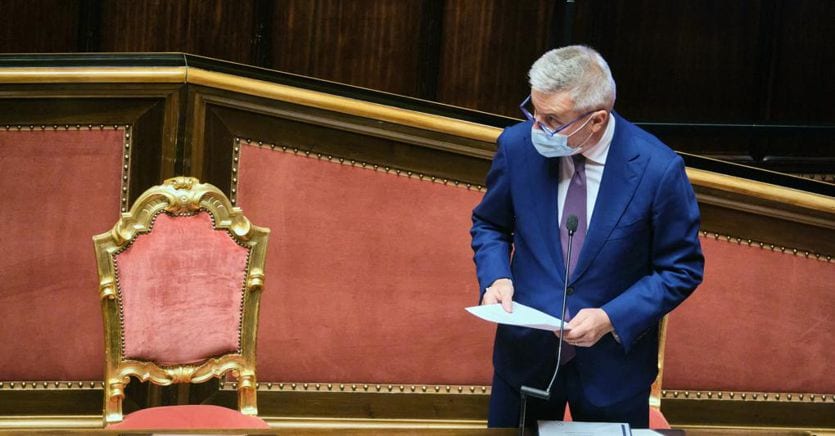A strategic geopolitical tool, the defense industry is a system to be relaunched, strengthened and placed at the center of government guidelines. For national security, the drive for economic recovery, the strengthening of Italy among allies and in international relations of force. Against this backdrop, the Minister of Defense, Lorenzo Guerini, issues a directive for the first time. A political act projected beyond the needs of a military nature and aimed at defining long-range paths, objectives and actions in the interaction between industry and the armed forces. A vision aimed at relaunching the national economy and the need for a new leadership in transnational fora.
The pandemic has sparked competition
«The pandemic has fueled the antagonism between states for the purpose of economic revival and geopolitical positioning in the post-COVID 19 world» remembers Guerini. Thus “having avant-garde technological and military capabilities is not only a guarantee of security, but also a fundamental factor of resilience for the country”. The Minister of Defense underlines how “the industrial dimension of defense assumes primary geopolitical importance”: it constitutes “above all in agreements between governments, as a catalyst for cooperation with other countries and for strengthening Italy’s international role”. In such an unbridled competition, it is necessary to accelerate exports and the still underdeveloped G-to-G (government to government) agreements.
Loading…
Weakened national production system
The relaunch, however, also involves an awareness of limits, fragility and critical issues. Guerini does not hide: “The effects of the pandemic that have weakened the national production system also concern the defense industry, with implications of a geostrategic as well as economic nature”. While we are witnessing an “assertive posture of some international actors: it is increasingly expressed also with the use of industrial economic influence for geopolitical objectives – reads the directive – through commercial initiatives aimed at eroding the technological advantage, undermining market shares and acquire valuable know-how of the national industry ». Guerini spoke about it in the recent hearing at Copasir (parliamentary committee for the security of the Republic.
The vulnerability risk of the domestic industry
The owner of the Defense highlights how “large Italian companies and, in particular, those that have the State as their shareholder of reference, need to concentrate and strengthen their areas of technological and industrial excellence”. For a need for international competitiveness. But also because the need “for a consolidation of their financial structure” emerges. Not all, in fact, have brilliant balance sheets, indeed.
The other side of the risk is “the basis of the branched chain of small and medium-sized enterprises with a high technological content”. Guerini writes: «Due to its size and industrial profile, it is exposed and vulnerable to the evolution of the global market. In particular, in the uncertainty of the post-Covid-19 scenario ». Thus “the difficult survival of many SMEs in the aerospace, defense and security sector entails the risk of losing know-how and valuable technological clusters and weakening the entire national industrial system”. A dramatic scenario: “Italy would remain marginalized with strong repercussions on an industrial, technological, economic and geopolitical level”.
A new relationship between industry and the armed forces
The minister’s act, therefore, is a clear signal to the military industry: we need to innovate, invest and aim for global strategic development. Among other things, it is necessary to renew “the interaction between Defense and industry, building a synergic and strategically supportive” Defense System “, aimed at development rather than acquisition, technologies rather than products, more than to contracts, to the European and international dimension rather than to the national market. This, evolving from a relationship between the Armed Forces and industry of the “customer-supplier” type ». Often outdated relationship, now instead to be placed in the perspective of the international dimension, cooperation, development of industrial research. “In this way the Defense System will be able to project – says the directive – in the technological transitions between generations aimed at determining the future relations of power and influence between countries, in terms of military, technological and industrial capabilities”.
